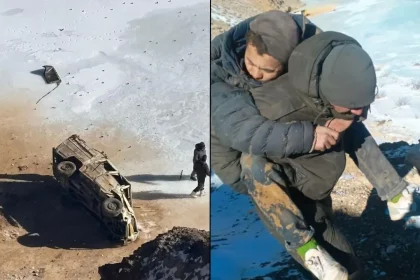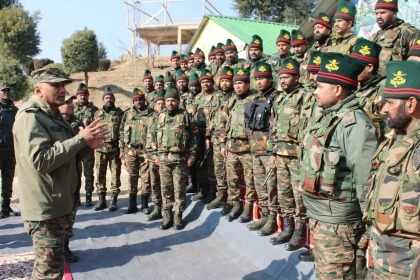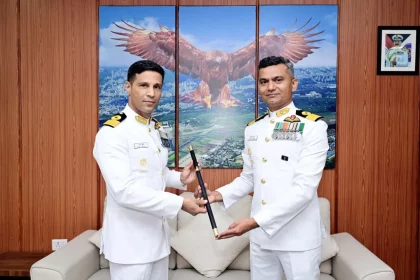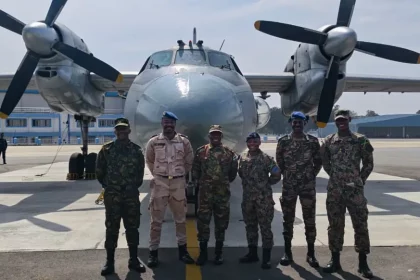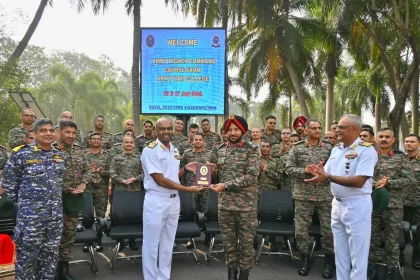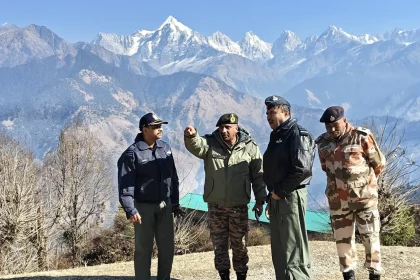Humanitarian Assistance at 15,000 ft: Indian Army Rescues Injured Civilians in Ladakh
Indian Army soldiers brave extreme conditions to evacuate and save civilians after accident near Durbuk.
Lt Gen Pratik Sharma Reviews Operational Preparedness of Frontline Units in North Kashmir
Northern Command chief lauds troops for innovation, technology integration, and high readiness along the North Kashmir front.
Commodore Rajat Kumar Assumes Command of INS Dega, Indian Navy’s Premier Air Station
MiG-29K pilot takes charge as 21st Commanding Officer of the Indian Navy’s key air station on the eastern seaboard.
ASC Centre & College Officers Witness Live Air Drop Demonstration at Air Force Station Yelahanka
Young Officers and international trainees gain firsthand insight into joint Army–IAF air maintenance and last-mile logistics operations at Yelahanka.
Higher Command Course Officers Visit Eastern Naval Command to Strengthen Tri-Service Jointness
Higher Command Course-54 delegation gains first-hand exposure to naval operations, platforms, and shore establishments at Eastern Naval Command.
Air Marshal B Manikantan Reviews Operational Readiness in Kumaon Sector
Central Air Command chief lauds Panchshul Brigade for resilience and vigilance during high-altitude readiness review.

